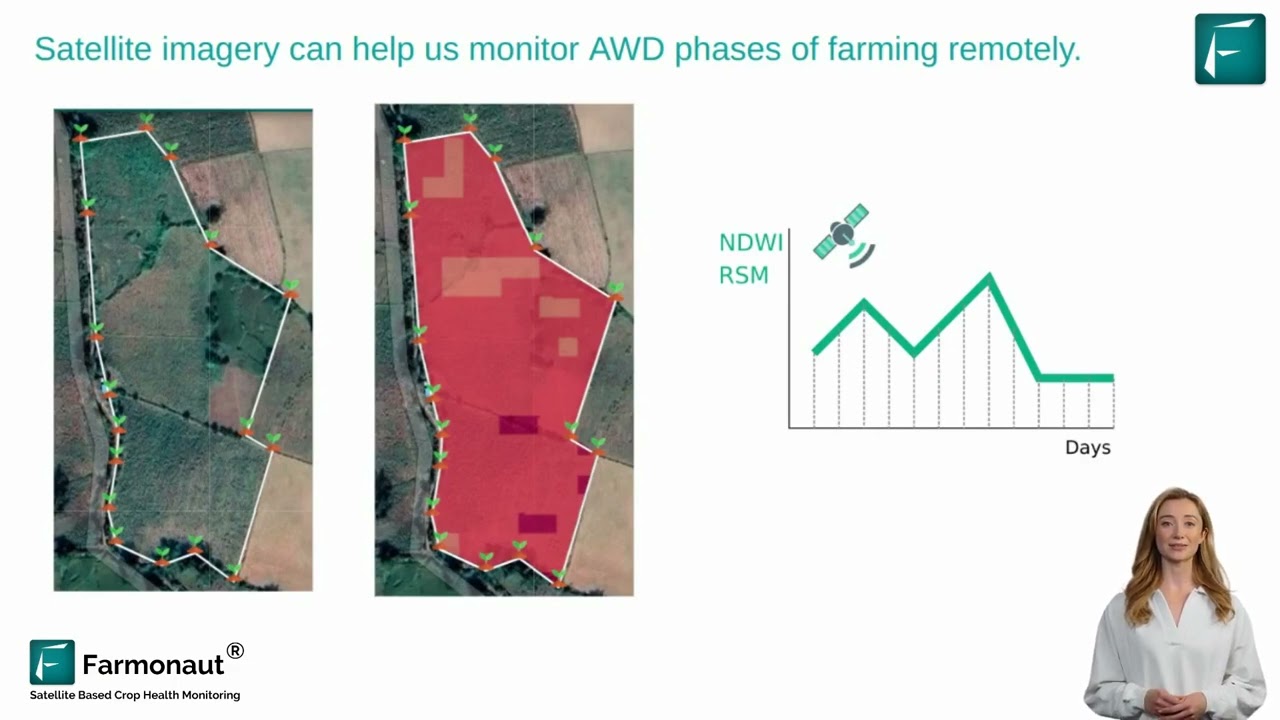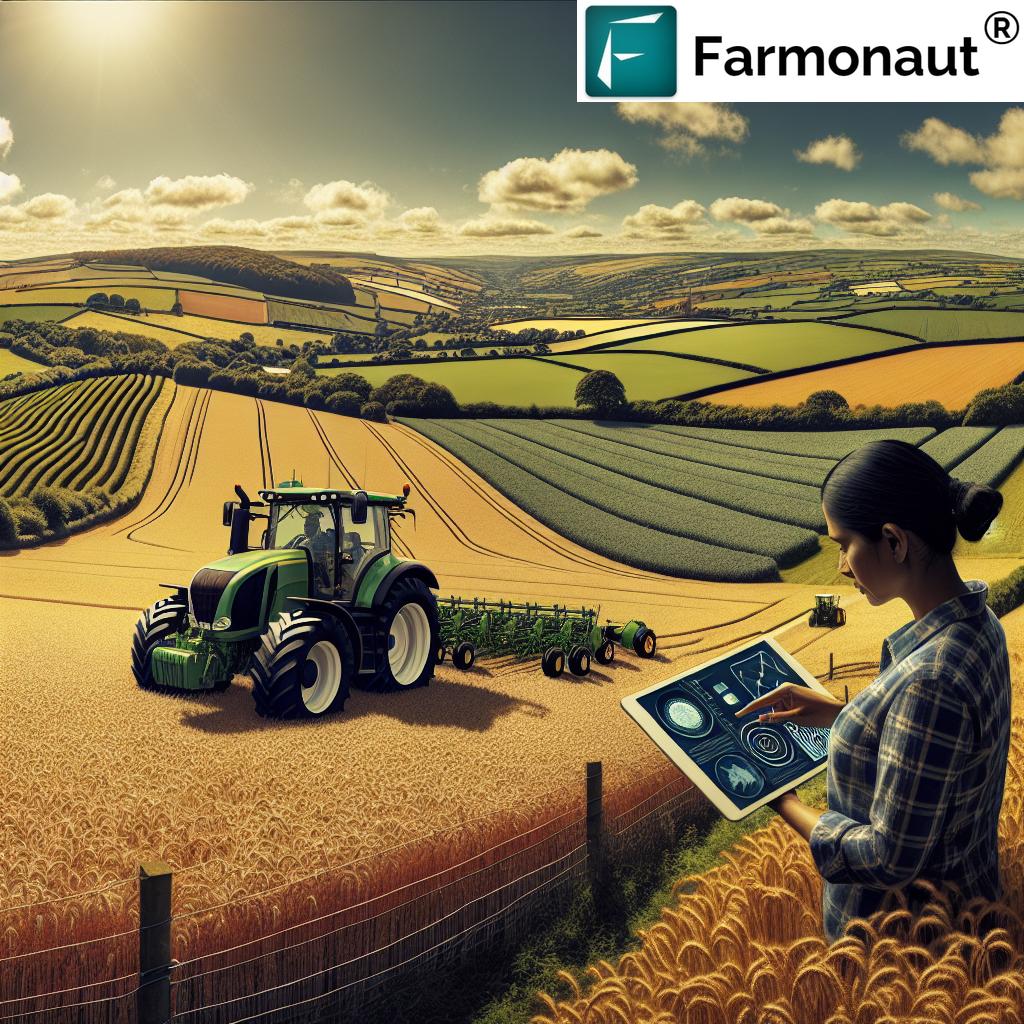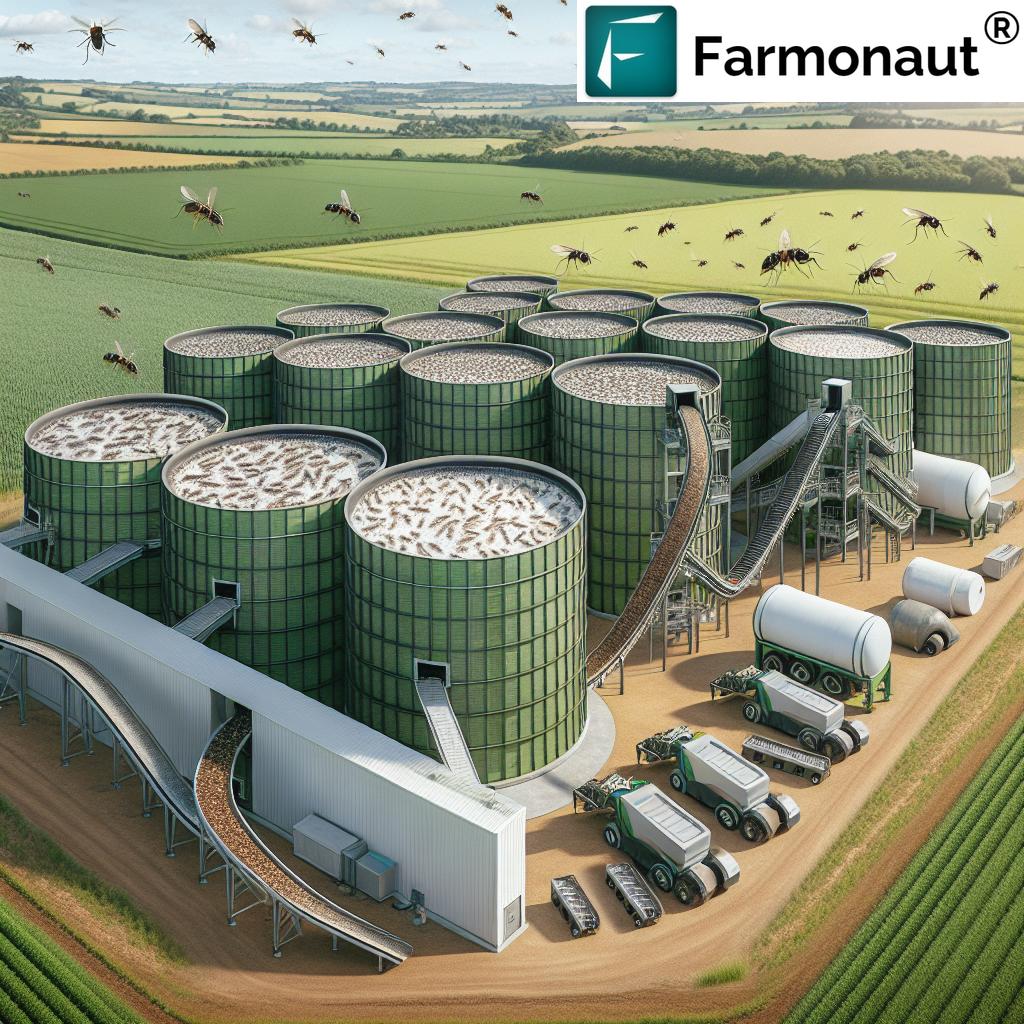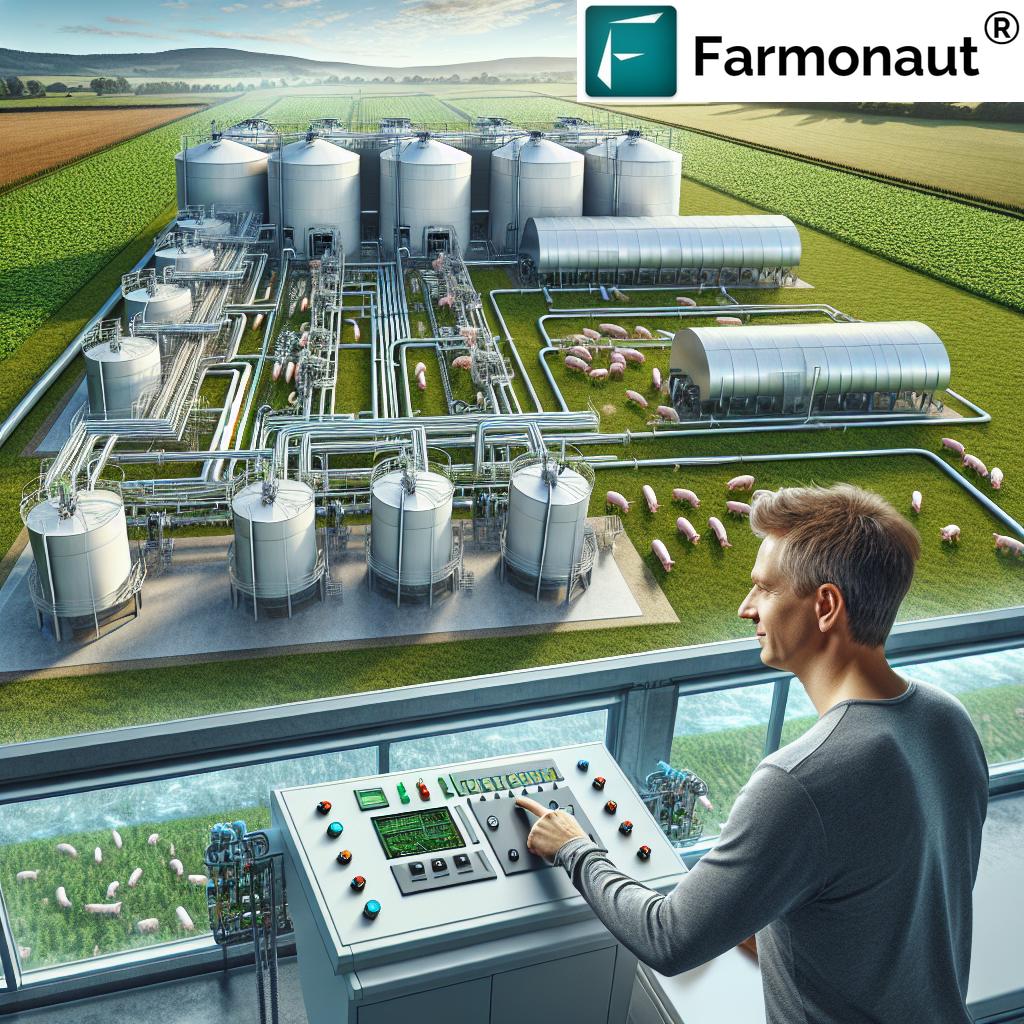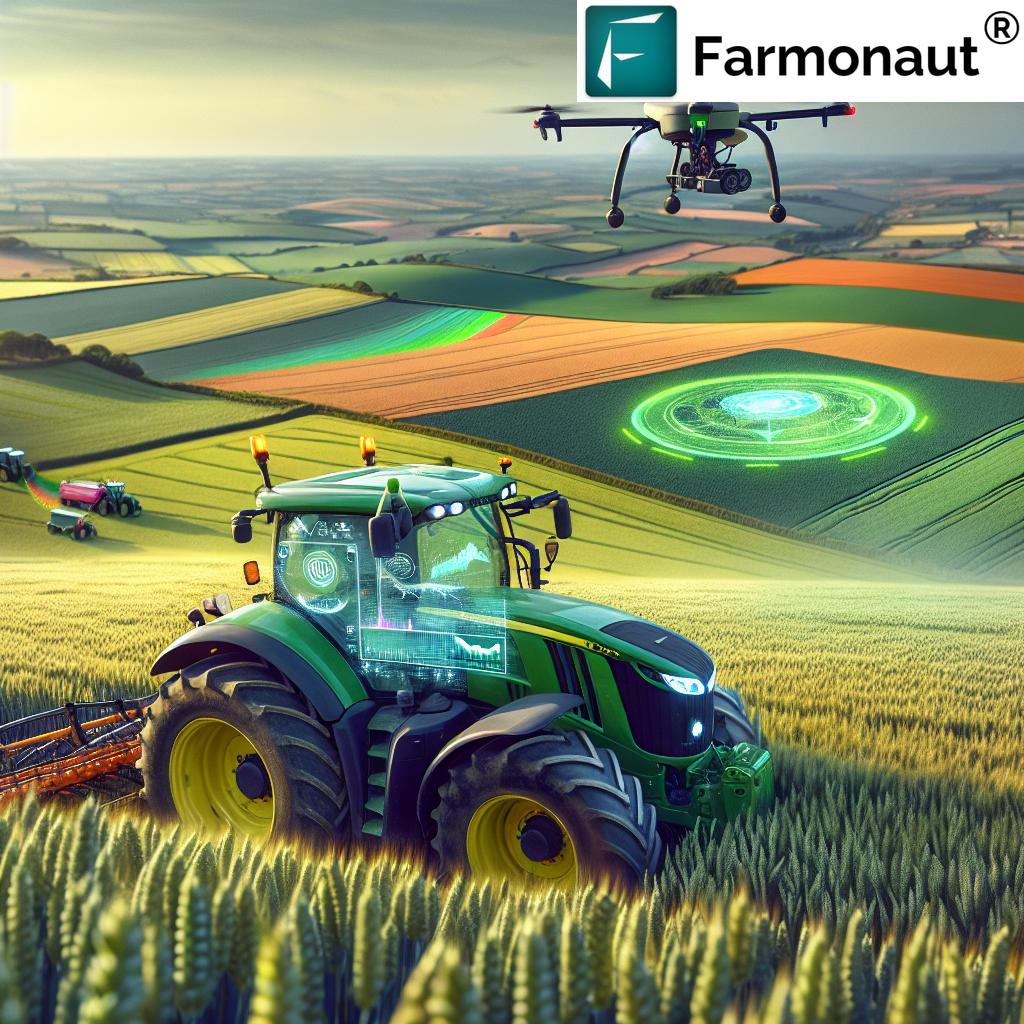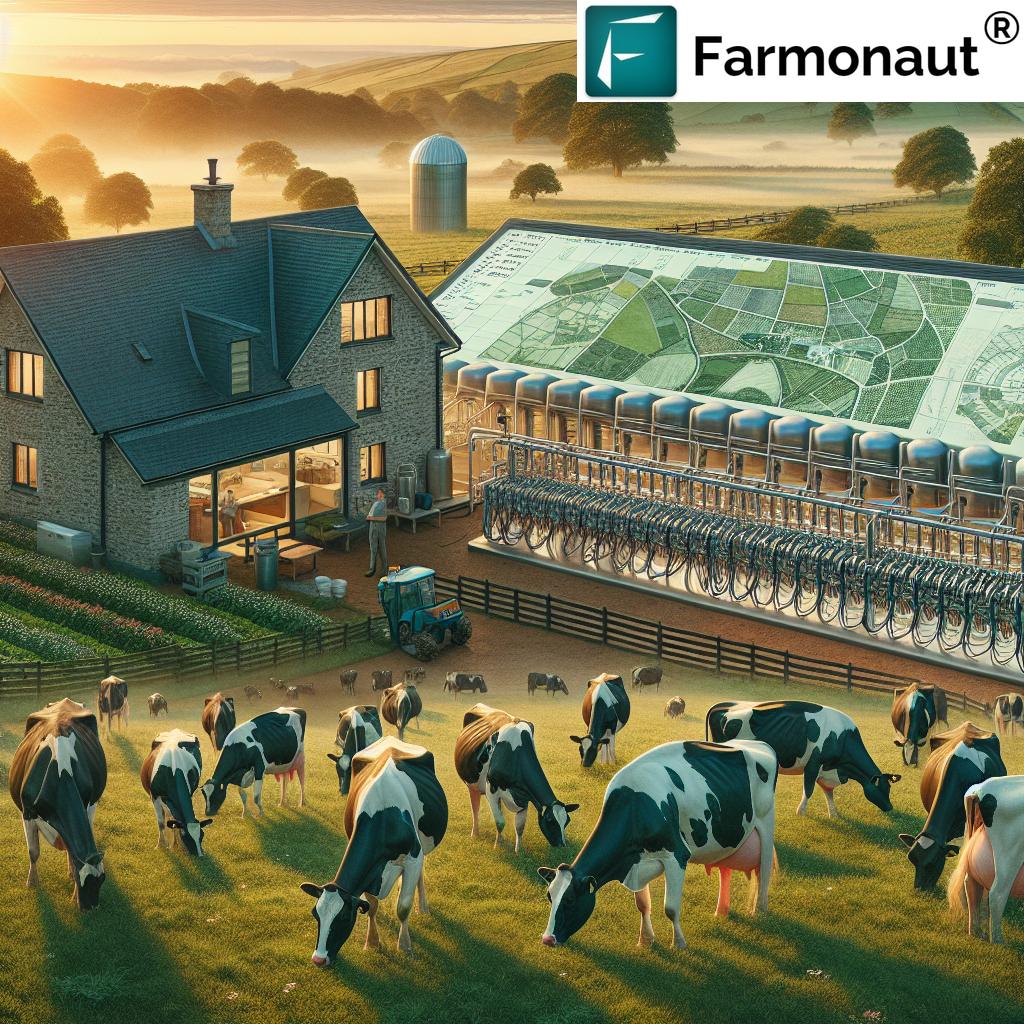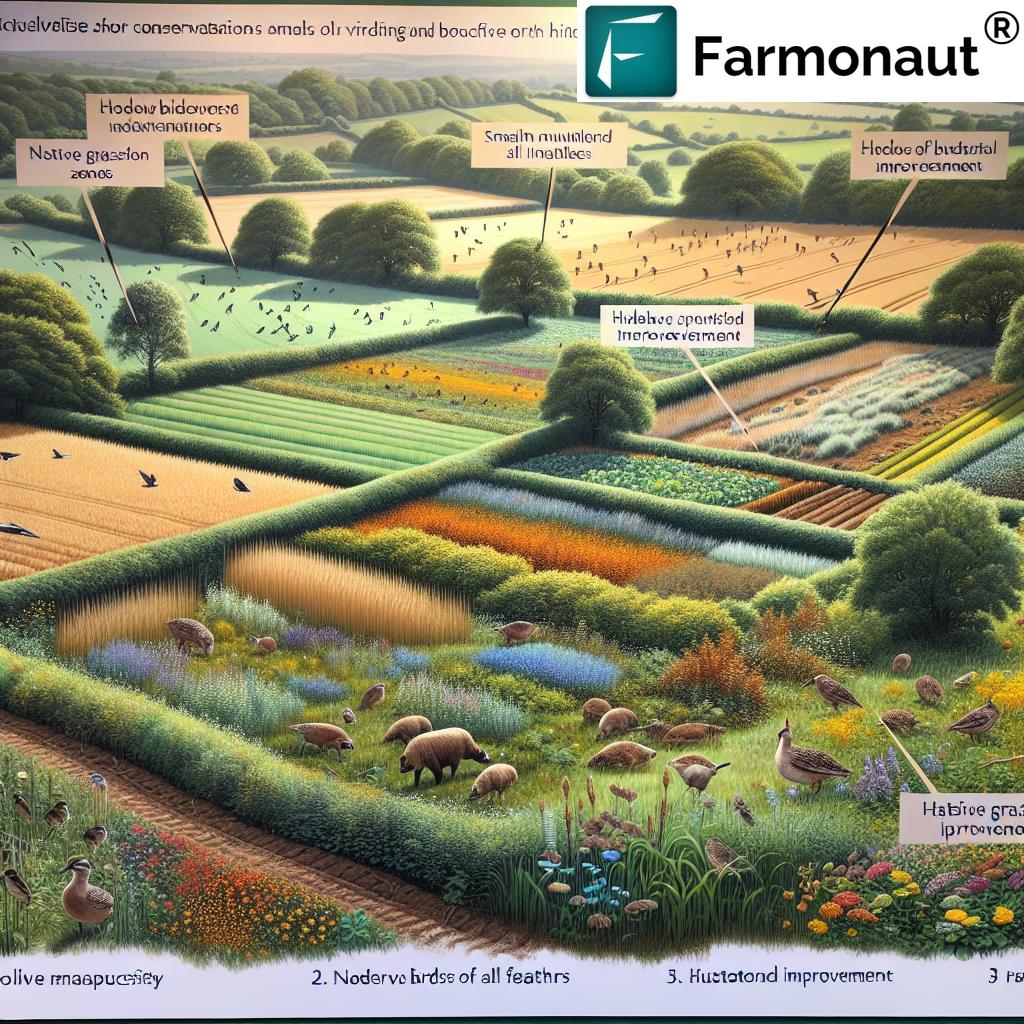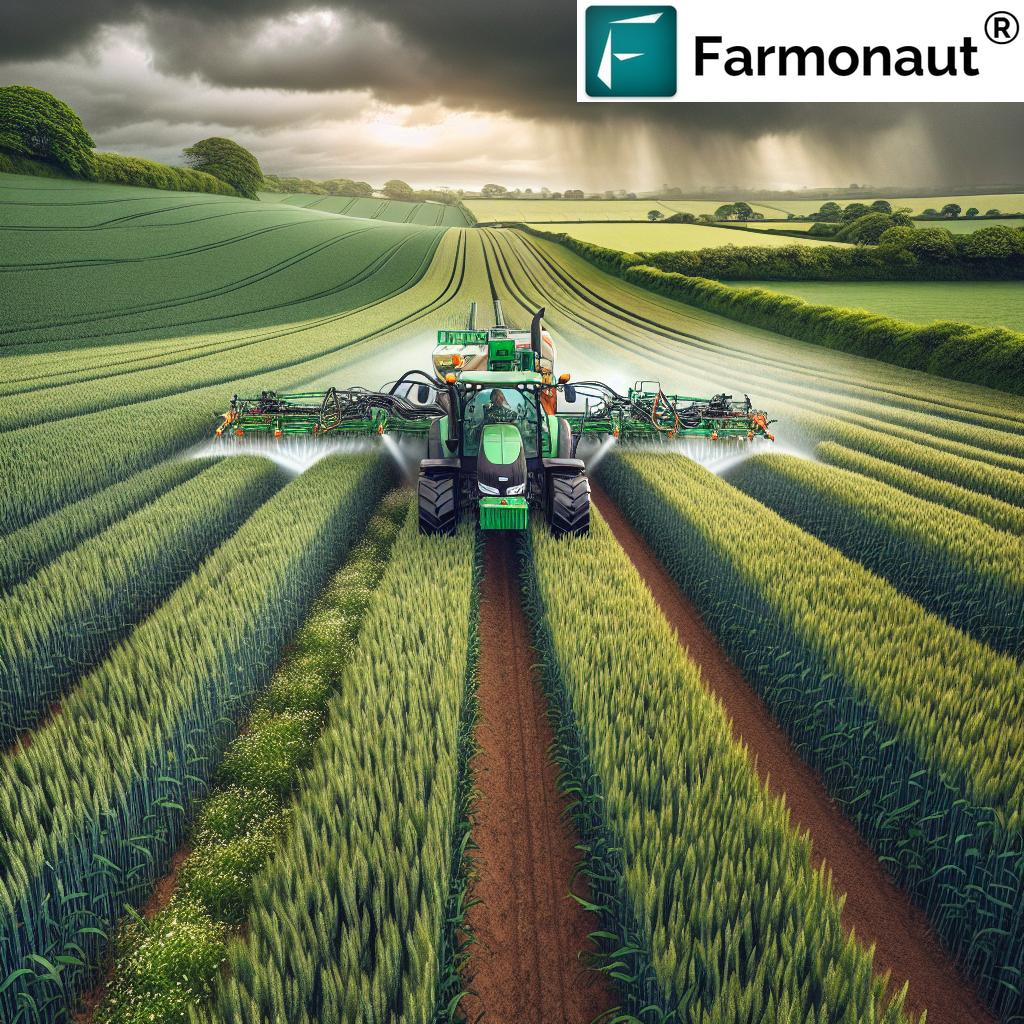Mastering the Field: Scotland’s Top Sheepdog Trials Showcase Agricultural Innovation and Rural Lifestyle
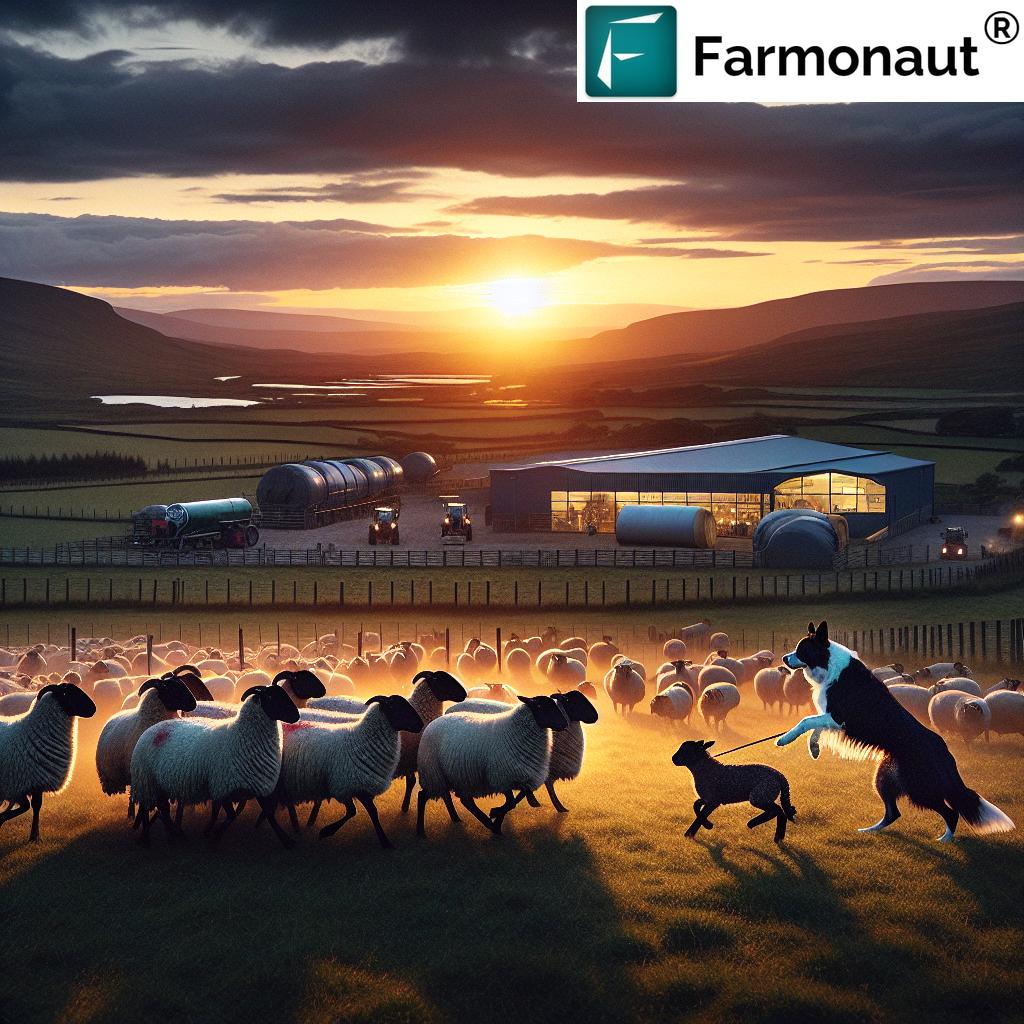
“Scotland’s top sheepdog trials attract over 500 competitors annually, showcasing the country’s rich agricultural heritage.”
Welcome to our comprehensive exploration of Scotland’s vibrant sheepdog trials scene and the cutting-edge agricultural innovations shaping the rural landscape. In this blog post, we’ll delve into the fascinating world of sheepdog trials, examining how these events not only showcase the remarkable bond between handlers and their skilled working dogs but also reflect the evolving face of modern farming in Scotland.
As we journey through the rolling hills and bustling agricultural communities of Scotland, we’ll witness firsthand how precision agriculture and sustainable farming practices are revolutionizing the industry. We’ll also explore how innovative agtech solutions, such as those offered by Farmonaut, are empowering farmers to make data-driven decisions and optimize their operations.
The Rich Tradition of Sheepdog Trials in Scotland
Sheepdog trials have been an integral part of Scotland’s agricultural heritage for generations. These events not only celebrate the incredible skills of working dogs but also serve as a testament to the enduring partnership between humans and canines in managing livestock. Let’s explore some of the most prominent sheepdog trials across Scotland:
| Trial Name | Location | Date | Number of Participants | Key Features |
|---|---|---|---|---|
| Scottish National Sheepdog Trials | Rotating locations | August | 150+ | Prestigious national championship, diverse terrain challenges |
| Highland Sheepdog Trials | Sutherland | June | 100+ | Rugged highland landscape, traditional crofting techniques |
| Border Collie Championships | Scottish Borders | September | 120+ | Breed-specific competition, intricate obstacle courses |
| Lochcarron Sheepdog Trials | Wester Ross | July | 80+ | Scenic coastal setting, challenging wind conditions |
| Atholl and Weem Sheepdog Trials | Perthshire | May | 90+ | Historic estate grounds, integration of modern farming tech |
These trials not only showcase the incredible skills of working dogs but also serve as important networking events for the agricultural community. Farmers, handlers, and enthusiasts gather to exchange ideas, discuss the latest trends in livestock management, and celebrate their shared rural heritage.
The Art and Science of Sheepdog Training
At the heart of every successful sheepdog trial is the intricate relationship between handler and dog. Training a sheepdog requires patience, consistency, and a deep understanding of canine behavior. Here are some key aspects of sheepdog training that contribute to success in trials:
- Early socialization: Exposing puppies to livestock from a young age helps develop their natural herding instincts.
- Basic obedience: A solid foundation in commands like “come,” “stay,” and “down” is essential for control during trials.
- Directional training: Teaching dogs to respond to whistles and voice commands for left, right, and stop movements.
- Distance work: Gradually increasing the distance between handler and dog to build confidence and independence.
- Sheep interaction: Controlled exposure to different types of sheep and flock sizes to refine herding techniques.
The bond between handler and dog is paramount in sheepdog trials. Successful pairs often train together for years, developing an almost telepathic connection that allows them to navigate complex courses with precision and grace.
Precision Agriculture: Revolutionizing Scottish Farming
“Precision agriculture techniques adopted by Scottish farmers have increased crop yields by up to 15% in recent years.”
While sheepdog trials celebrate traditional farming skills, the agricultural landscape in Scotland is rapidly evolving with the adoption of precision agriculture techniques. These innovative approaches are helping farmers optimize resource use, increase yields, and reduce environmental impact. Let’s explore some of the key technologies shaping modern Scottish agriculture:
Satellite-Based Crop Monitoring
One of the most significant advancements in precision agriculture is the use of satellite imagery for crop health monitoring. Companies like Farmonaut are at the forefront of this technology, providing farmers with valuable insights into their fields without the need for expensive on-ground equipment.
Farmonaut’s platform utilizes multispectral satellite images to analyze various aspects of crop health, including:
- Vegetation health (NDVI)
- Soil moisture levels
- Pest and disease detection
- Yield prediction
By accessing this data through user-friendly mobile and web applications, Scottish farmers can make informed decisions about irrigation, fertilizer application, and pest management, ultimately leading to improved crop yields and reduced resource wastage.
AI-Powered Farm Advisory Systems
Artificial intelligence is playing an increasingly important role in modern agriculture. Farmonaut’s Jeevn AI advisory system is a prime example of how AI can be leveraged to provide personalized farm management recommendations. This system analyzes satellite data, weather forecasts, and historical farm information to generate tailored advice on:
- Optimal planting and harvesting times
- Crop rotation strategies
- Pest and disease prevention
- Resource allocation
For Scottish farmers dealing with unpredictable weather patterns and challenging terrain, AI-powered advisory systems can be a game-changer in optimizing farm operations and mitigating risks.
Precision Livestock Management
While sheepdog trials showcase traditional livestock handling methods, modern farmers are also embracing technology to improve animal welfare and productivity. Some innovative solutions in this area include:
- Electronic identification tags: RFID tags allow for individual animal tracking and data collection.
- Automated feeding systems: Precision feeders dispense customized rations based on each animal’s nutritional needs.
- Health monitoring sensors: Wearable devices track vital signs and activity levels to detect early signs of illness.
- Virtual fencing: GPS-enabled collars create invisible boundaries, reducing the need for physical fences and allowing for more flexible grazing management.
These technologies not only improve efficiency but also contribute to better animal welfare and more sustainable farming practices.
Sustainable Farming Practices in Scotland
As the agricultural industry faces increasing pressure to reduce its environmental impact, Scottish farmers are adopting a range of sustainable practices. Many of these approaches combine traditional knowledge with modern technology to create more resilient and eco-friendly farming systems.
Regenerative Agriculture
Regenerative agriculture focuses on improving soil health and biodiversity while maintaining productive farmland. Key practices include:
- Minimal tillage to preserve soil structure
- Cover cropping to prevent erosion and enhance soil fertility
- Rotational grazing to promote pasture health
- Agroforestry to increase biodiversity and provide additional income streams
These methods not only benefit the environment but can also lead to more resilient farms better equipped to handle climate variability.
Carbon Footprint Reduction
Reducing the carbon footprint of agricultural operations is a growing priority for Scottish farmers. Farmonaut’s carbon footprinting feature allows agribusinesses to track their emissions in real-time, enabling them to identify areas for improvement and implement more sustainable practices.
Explore Farmonaut’s API for advanced agricultural data analysis
Some strategies for reducing farm carbon emissions include:
- Implementing renewable energy sources like wind and solar
- Improving energy efficiency in farm buildings and machinery
- Adopting precision agriculture techniques to optimize input use
- Enhancing soil carbon sequestration through improved land management
Water Conservation
Efficient water management is crucial for sustainable farming, especially in areas prone to drought or flooding. Scottish farmers are implementing various water conservation techniques, including:
- Precision irrigation systems guided by soil moisture sensors
- Rainwater harvesting and storage
- Drought-resistant crop varieties
- Improved drainage systems to manage excess water
By combining these practices with data-driven insights from platforms like Farmonaut, farmers can optimize their water use and build more resilient agricultural systems.
The Role of Agtech in Modernizing Scottish Agriculture
As we’ve seen, technology is playing an increasingly important role in shaping the future of Scottish agriculture. Companies like Farmonaut are at the forefront of this agtech revolution, providing farmers with powerful tools to optimize their operations and adapt to changing conditions.
Satellite-Based Farm Management
Farmonaut’s satellite-based farm management platform offers a range of benefits for Scottish farmers:
- Cost-effective monitoring: Satellite imagery eliminates the need for expensive on-ground sensors or drones.
- Large-scale coverage: Entire farms can be monitored efficiently, regardless of size or terrain.
- Historical data analysis: Farmers can track changes in their fields over time to identify long-term trends.
- Integration with other farm systems: Data from Farmonaut can be combined with other farm management tools for comprehensive decision-making.
Access Farmonaut’s API Developer Docs for custom integrations
Mobile and Web Applications
The accessibility of farm management tools through mobile and web applications is crucial for busy farmers. Farmonaut’s user-friendly interfaces allow farmers to:
- View real-time crop health maps
- Receive personalized alerts and recommendations
- Track weather patterns and forecast impacts
- Manage farm resources and logistics
Data-Driven Decision Making
The wealth of data provided by agtech solutions empowers farmers to make more informed decisions. By analyzing historical trends, current conditions, and predictive models, farmers can:
- Optimize planting and harvesting schedules
- Fine-tune input applications for maximum efficiency
- Identify and address potential issues before they become serious problems
- Adapt management strategies based on changing environmental conditions
This data-driven approach not only improves farm productivity but also contributes to more sustainable and resilient agricultural systems.
The Future of Scottish Agriculture: Balancing Tradition and Innovation
As we look to the future of Scottish agriculture, it’s clear that success will lie in striking a balance between honoring traditional practices and embracing innovative technologies. The enduring popularity of sheepdog trials serves as a reminder of the importance of preserving agricultural heritage, while the adoption of precision farming techniques and sustainable practices points the way forward for a more resilient and productive industry.
Emerging Trends
Some key trends shaping the future of Scottish agriculture include:
- Diversification: Farmers are exploring new revenue streams, such as agritourism and value-added products.
- Vertical farming: Urban and indoor farming systems are gaining traction, especially for high-value crops.
- Robotics and automation: Labor-saving technologies are becoming more prevalent in both crop and livestock farming.
- Blockchain for traceability: Increasing consumer demand for transparency is driving adoption of blockchain-based supply chain solutions.
- Climate-smart agriculture: Farmers are adapting their practices to mitigate and adapt to climate change impacts.
Challenges and Opportunities
While the future of Scottish agriculture is bright, there are also challenges to be addressed:
- Skills gap: Ensuring farmers have the technical knowledge to leverage new technologies effectively.
- Rural connectivity: Improving broadband and mobile coverage in remote areas to enable full adoption of digital farming tools.
- Market volatility: Developing strategies to help farmers navigate uncertain global markets and changing trade relationships.
- Generational transition: Supporting young farmers and facilitating smooth succession planning for aging farm owners.
By addressing these challenges head-on and embracing the opportunities presented by new technologies and sustainable practices, Scottish agriculture can continue to thrive in the years to come.
Conclusion: A Bright Future for Scottish Agriculture
As we’ve explored in this blog post, the world of Scottish agriculture is a fascinating blend of time-honored traditions and cutting-edge innovations. From the skill and precision displayed in sheepdog trials to the data-driven insights provided by companies like Farmonaut, the industry is constantly evolving to meet the challenges of the 21st century.
By embracing precision agriculture techniques, sustainable farming practices, and innovative agtech solutions, Scottish farmers are positioning themselves at the forefront of global agricultural innovation. The resilience and adaptability demonstrated by the agricultural community in the face of changing field conditions and weather challenges are truly inspiring.
As we look to the future, it’s clear that the successful farms of tomorrow will be those that can effectively balance traditional knowledge with modern technology. By honoring their rich agricultural heritage while leveraging the power of data-driven decision-making, Scottish farmers are well-positioned to continue producing high-quality food sustainably for generations to come.
Whether you’re a farmer looking to optimize your operations, an agricultural enthusiast interested in the latest industry trends, or simply curious about the fascinating world of Scottish agriculture, we hope this blog post has provided valuable insights and inspiration. The future of farming in Scotland is bright, and we’re excited to see how the industry continues to evolve and innovate in the years ahead.
Frequently Asked Questions
- What are sheepdog trials?
Sheepdog trials are competitions that showcase the skills of working dogs, typically Border Collies, in herding sheep through a series of obstacles and challenges. These events test the communication and teamwork between the handler and their dog. - How do precision agriculture techniques benefit farmers?
Precision agriculture techniques, such as satellite-based crop monitoring and AI-powered advisory systems, help farmers optimize resource use, increase yields, reduce waste, and make more informed decisions about crop management. - What is Farmonaut, and how does it help farmers?
Farmonaut is an agricultural technology company that provides satellite-based farm management solutions. Their platform offers services such as real-time crop health monitoring, AI-based advisory systems, and resource management tools to help farmers improve productivity and sustainability. - How are Scottish farmers adapting to climate change?
Scottish farmers are adopting various strategies to adapt to climate change, including implementing sustainable farming practices, using precision agriculture techniques to optimize resource use, and exploring diversification opportunities to increase farm resilience. - What role do sheepdog trials play in modern Scottish agriculture?
Sheepdog trials continue to play an important role in Scottish agriculture by preserving traditional skills, fostering community connections, and providing a platform for farmers to showcase their working dogs’ abilities. These events also serve as networking opportunities for the agricultural community.




